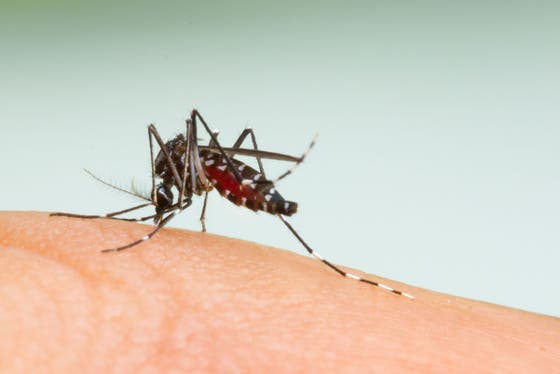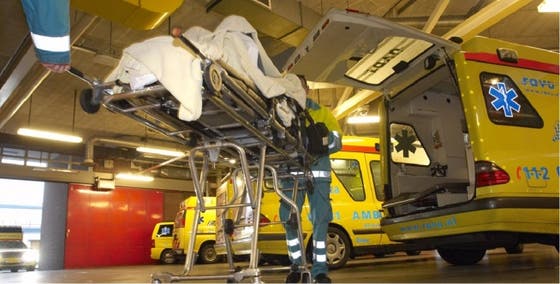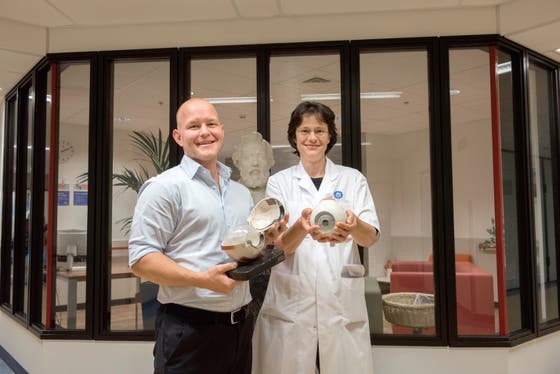Infection and Immunity nieuws
Sep 26: Online training for general practitioners reduces antibiotic use in children

A targeted online training program for general practitioners (GPs), together with an information booklet for parents, resulted in fewer antibiotic prescriptions for children with respiratory tract infections. Unnecessary antibiotic use can thus be reduced relatively easy, and offers advantages such as a lower risk of antibiotic resistance, fewer side effects and less health care costs. Anne Dekker draws these conclusions in het research, on which she will be awarded a PhD on 27 September in Utrecht.
Read moreSep 7: Complications from chronic Q-fever cause extra mortality

In patients who have developed a proven chronic form of Q-fever, complications are found in over 60 percent of cases and a quarter of these patients died within 3 years due to the infection. These results have been described by Sonja van Roeden of the UMC Utrecht who was awarded a PhD in Utrecht this week.
Read moreSep 6: Tiger mosquito more often spends holiday in the Netherlands

Exotic mosquitos are no longer an exception in the Netherlands. The numbers are not very high yet, but they are being reported more and more often. Exotic mosquitoes can spread viruses that make people sick. Researchers from University Medical Center (UMC) Utrecht and the National Institute for Public Health and Environment (RIVM) want to know what health risks this entails for the Netherlands. That is why they are asking the help of travelers who are going to exotic countries in the coming year where these mosquitoes are already spreading diseases such as dengue and zika.
Read moreSep 3: Immune system goes wild after serious accident

Poorly reacting white blood cells disrupt the immune system of trauma patients causing serious complications and mortality. The degree of insensitivity of immune cells to environmental signals may be a useful marker for predicting serious complications, according to Kathelijne Groeneveld, who was awarded a PhD in Utrecht last week.
Read moreAug 30: Maternal vaccine can prevent infant mortality due to RSV infection

A respiratory infection with the respiratory syncytial virus (RSV) is a major cause of hospitalization in young children. Vaccination of pregnant women seems a good strategy to prevent life-threatening RSV infections in infants immediately after birth up to several months thereafter. This was concluded by Nienke Scheltema in her research on which she will be awarded a PhD in Utrecht on August 30.
Read moreJul 30: Gene defect predicts chronic eye inflammation in juvenile idiopathic arthritis

Researchers at University Medical Center (UMC) Utrecht have discovered a genetic defect that predicts whether a patient with JIA (juvenile idiopathic arthritis or childhood rheumatism) will develop severe chronic eye inflammation (uveitis). This discovery offers prospects for a tailor-made treatment for these patients. This may be cheaper, less time-consuming and less burdensome.
Read moreJul 5: Disease-transcending research for treatment tailored to psoriatic arthritis

UMC Utrecht starts a study with the aim of finding an earlier diagnosis, a better prediction of the disease course and the most optimal treatment strategy for the chronic inflammatory disease psoriatic arthritis. A disease-transcending approach and big data analyzes play an important role in the first large clinical study in this field with a budget of more than € 15 million.
Read moreJun 29: Combat juvenile idiopathic arthritis together

The current method for treatment of juvenile idiopathic arthritis is not sufficient and should be replaced by the recently developed treat-to-target treatment. In the latter case, specific targets are set by physician and patient within set timeframes. And so doctors can sooner identify patients that need more intensive treatment. This is the conclusion of pediatric rheumatologist-immunologist Joost Swart at UMC Utrecht, who received his doctorate on 28 June.
Read moreJun 19: Prophylactic antibiotics at the ICU do not result in fewer bloodstream infections

In intensive care (IC) departments with moderate-to-high prevalence of antibiotic resistance, prophylactic decontamination did not result in fewer IC-acquired bloodstream infections or mortality. These conclusions were drawn by Nienke Plantinga and Bastiaan Wittekamp from UMC Utrecht during the defense of their theses on 19 June in Utrecht.
Read moreJun 18: Unclear food labels cause allergic reactions

People with food allergies regularly get an allergic reaction due to unclear warnings on food labels. This is shown by research by UMC Utrecht and TNO among 157 people with a food allergy. These patients were followed for a year and nearly half of them, 46 percent, received one or more allergic reactions due to incorrect or incomplete warnings on food labels. Six of them ended up in the emergency department.
Read more